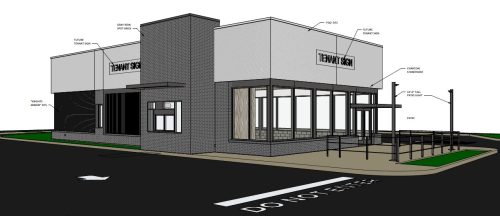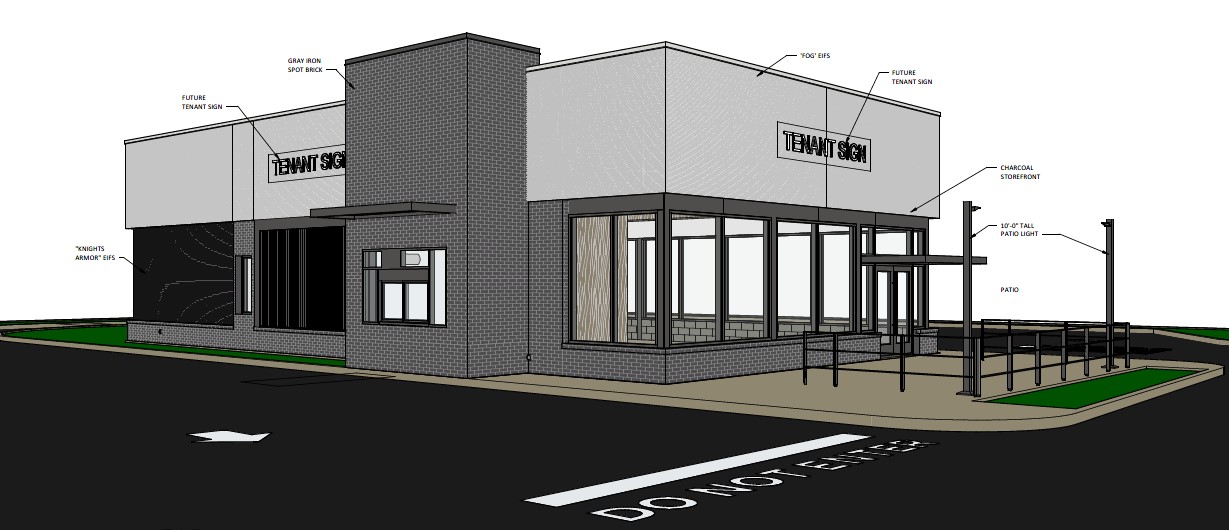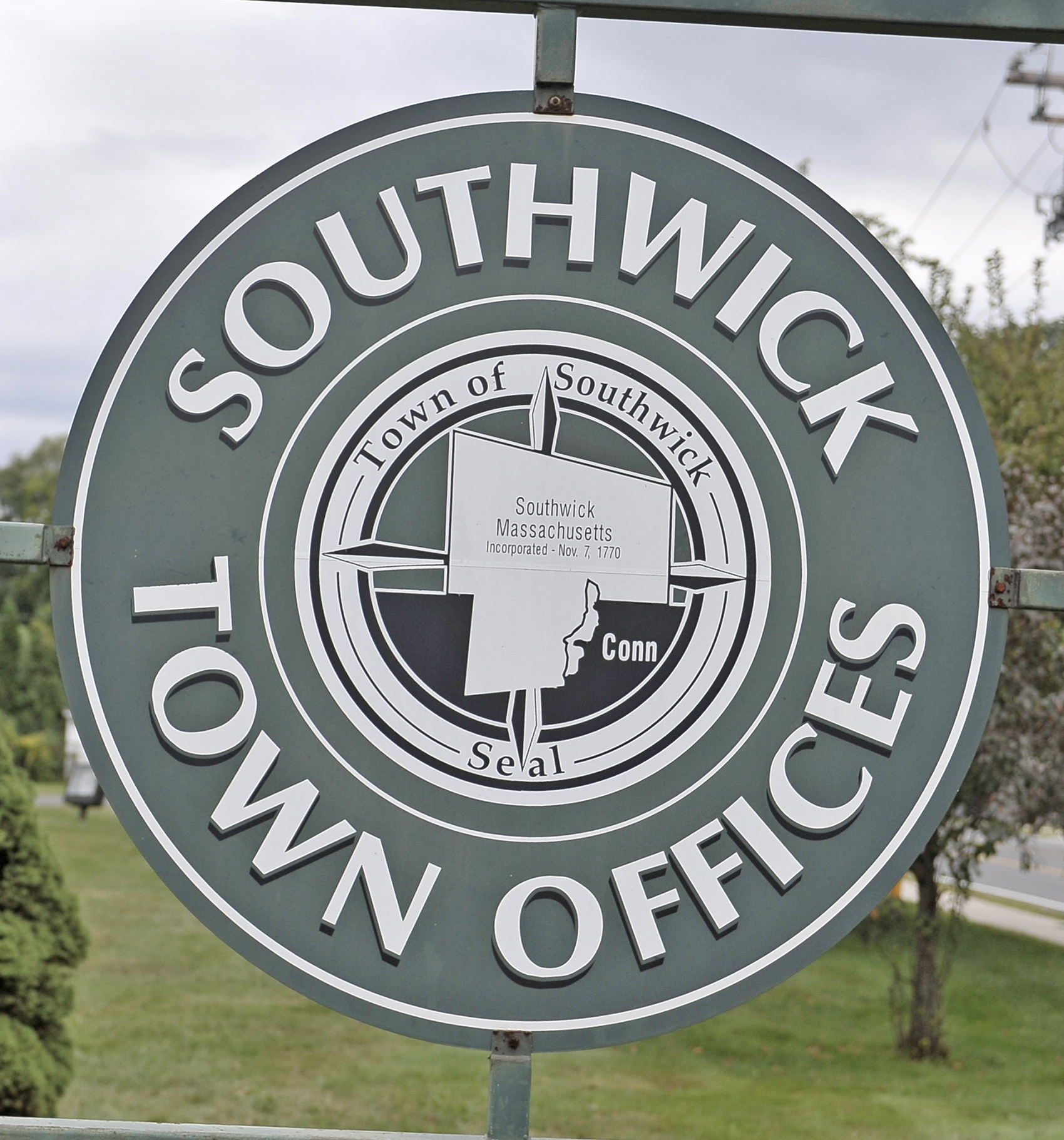
Developers submitted this drawing to the Planning Board in August of unnamed restaurant planned for the Big Y shopping plaza on East Main Street. (SUBMITTED)
WESTFIELD — The “unnamed” fast food restaurant at 457 E. Main St. was approved by the Conservation Commission on Oct. 26, after receiving a site permit from the Planning Board in August. Developers say the drive-up restaurant, to be located in the parking area of the Big Y Plaza toward Route 20, will rely on prepaid orders through an app, though they still will not say what its name is.
Ryan Nelson of R. Levesque Associates, who presented the plan to Conservation, said the restaurant would be sited within the existing parking lot toward Route 20, and would result in an overall net reduction of impervious area because of the addition of landscaped islands. Two additional stormwater catchbasins are also being added. The entire plaza is within a flood plain.
Some concern was expressed about the same compensatory storage area being used for this restaurant as for the proposed Aldi grocery store, an agreement that was made between restaurant developer Henry Resnikoff of Essex, Conn., and Reuben Twersky of Brixmore, which owns the Westgate Plaza portion of the shopping center where Aldi will be built.
Compensatory storage is land within the 100-year floodplain that can absorb floodwaters to balance the loss of natural land when structures and pavement are built. The compensatory storage for Aldi and the new restaurant is in a meadow behind Aldi on the other side of the Little River.
Commissioner Clifford Laraway said this restaurant was a quarter mile away down the road, and questioned whether flooding there would come from the same direction. He also asked how far the coverage of the compensatory storage in the south meadow would extend.
Laraway said the issue seemed to come up dramatically during the permitting discussion for Aldi, “and now we seem just fine.”
The Aldi plan was approved by the commission in February, after more than three months of scrutiny of the impact of the proposed building on the 100-year flood zone between the Little River and the Westfield River. Before approval, an outside expert, Stantec Consulting Services in Northampton, was asked by the commission to review the plan at a cost of $2,000 to the applicant. Their report said the impact of the Aldi building would be negligible, and the project met the performance standards for the floodplain.
On Tuesday, Commissioner Alex Fagnand said the FEMA flood map for the area doesn’t show or give the commission the ability to say where the floodwaters are projected to come from.
“It’s a real challenge in the area — the whole area shouldn’t be developed. It’s a confluence of two rivers. I get your point, we don’t want to approve south meadow comp storage down to West Springfield. I don’t love it,” Fagnand said.
Chairman David A. Doe said that the state Department of Environmental Protection didn’t address the issue at all when it looked at the Aldi project, and added that if the area flooded, it would be difficult to tell which area of water came from which river.
Conservation Coordinator Meredith Borenstein added that if they were concerned, the DEP would have mentioned it.
“In one rain event, the Little River could flood the whole area. In another event, Westfield could. I think the meadows are hydrologically connected. I don’t see the impediments between the meadow area and this shopping center. … I see this area as one big area, the way it’s been treated historically,” Fagnand said, adding that although lately the question of floodplains has been a sticking point, to say no to this proposal would be deviating from past approvals.
Commissioner James Murphy asked whether the building would be flood-proof and be required to have flood-proof doors. Resnikoff said it was designed to be flood-proof, and the plans had already been reviewed once by the building inspector.
Borenstein said she was glad to see “landscaped islands in this sea of asphalt,” and asked that native plants be chosen. She also asked whether trees could be planted in islands along Route 20. Resnikoff said Route 20 is state property, and the state doesn’t allow anyone to plant trees there.
After a positive vote, Commissioner Thomas Sharp asked what kind of restaurant they had just approved. Borenstein said “an unnamed restaurant.”





